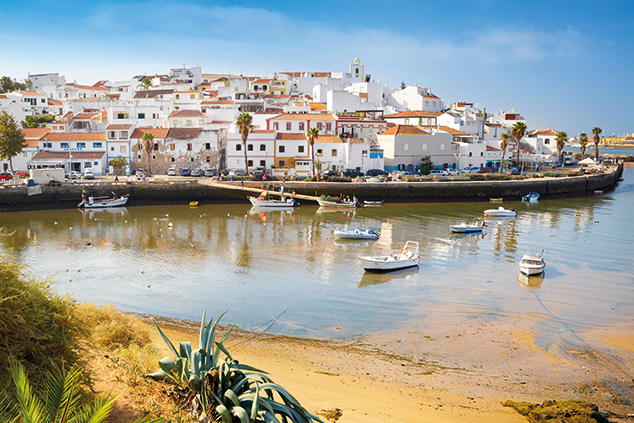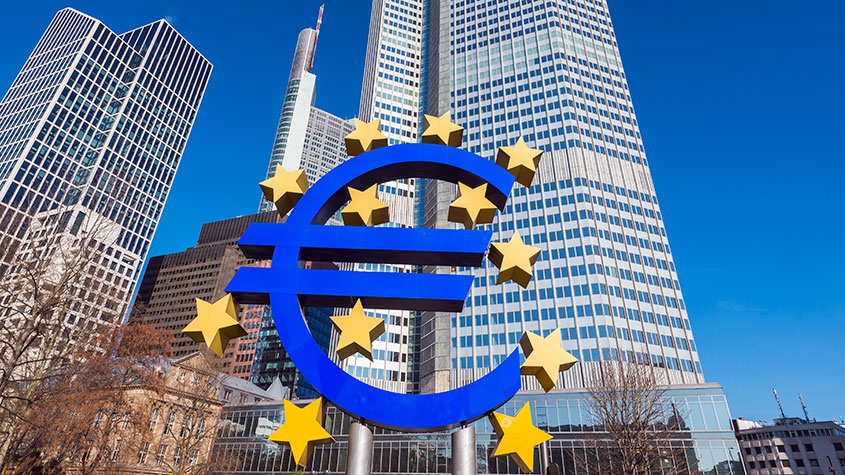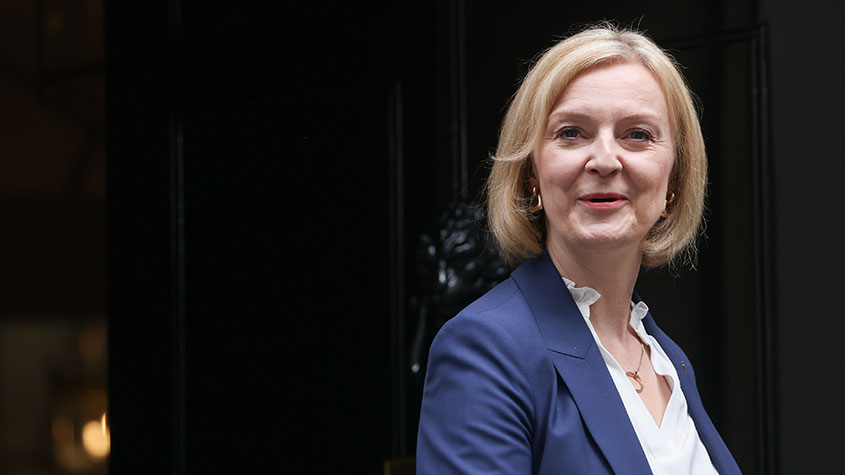Which countries sell citizenship and how much it costs
Fancy living in a European capital, or gaining citizenship of a Caribbean island? If you have deep enough pockets, the world is your oyster, says Alex Rankine.
Get the latest financial news, insights and expert analysis from our award-winning MoneyWeek team, to help you understand what really matters when it comes to your finances.
You are now subscribed
Your newsletter sign-up was successful
Want to add more newsletters?

Twice daily
MoneyWeek
Get the latest financial news, insights and expert analysis from our award-winning MoneyWeek team, to help you understand what really matters when it comes to your finances.

Four times a week
Look After My Bills
Sign up to our free money-saving newsletter, filled with the latest news and expert advice to help you find the best tips and deals for managing your bills. Start saving today!

How many countries sell citizenship?
About 100 countries worldwide offer residence in return for investment in the local economy known as a "golden visa" according to The Economist. America's EB-5 visa, for example, grants foreigners a coveted green card in return for at least $1m, or half of that if the money goes towards rural or deprived areas. "A dozen or so" jurisdictions go further by also offering citizenship on similar terms, "in effect selling citizenship". Those willing to stump up $100,000, for example, can secure a passport from the Caribbean island of Dominica and visa-free travel to Europe without fulfilling any residency requirements. In Dubai, in June this year, a luxury property developer was promoting Europe-themed artificial islands. The special summer deal? Buy a property, get a Moldovan passport bundled in.
What about Europe?
The EU has "welcomed more than 6,000 new citizens and nearly 100,000 new residents" over the past decade from such programmes, reports Transparency International. That has generated about €25bn in foreign direct investment over the period. Portugal has generated nearly €4bn from its scheme and as much as 5.2% of Cyprus's GDP in 2017 came from "the sale of EU passports". The biggest issuers of golden visas in the past decade were Spain, Hungary, Latvia, Portugal and the UK.
What does UK entry cost?
Since 2008 the UK has granted entry to wealthy non-Europeans in return for a £2m investment in British companies. That may seem like a high hurdle compared with some other schemes Malta grants outright citizenship for a little over €1m but such "Tier 1" visas have notable attractions, note George Arbuthnott and Jonathan Calvert in The Sunday Times. Because the £2m is an investment, "applicants do not actually part with any of their money the prudent can watch their money grow in company shares, and then take their cash offshore again to avoid UK tax once they have acquired leave-to-remain status after five years". Since 2008, more than 11,000 people have taken advantage of the UK's scheme.
MoneyWeek
Subscribe to MoneyWeek today and get your first six magazine issues absolutely FREE

Sign up to Money Morning
Don't miss the latest investment and personal finances news, market analysis, plus money-saving tips with our free twice-daily newsletter
Don't miss the latest investment and personal finances news, market analysis, plus money-saving tips with our free twice-daily newsletter
Who buys citizenship?
Chinese nationals are the biggest users of golden visa and passport schemes internationally. Home Office data shows that 3,767 Chinese nationals have used Tier 1 visas to enter the UK since 2008, with Russians in second place on 2,438. As Paul Williams of industry operator La Vida Golden Visas tells Katie Beck of BBC Worklife, individuals in countries where the rule of law is weak regard their overseas investments as "an insurance policy". As Ben Cowdock of Transparency International puts it, in unstable countries the politically connected often regard second passports as a way to "escape and enjoy the proceeds of their corruption should they find themselves out of favour".
Everything is not above board then?
No. A recent Sunday Times and Channel 4 undercover investigation filmed private advisers, who help UK Tier 1 applicants, boasting about how easy it is to pull the wool over the eyes of Home Office bureaucrats and avoid tricky questions. One talked of having secured a golden visa for a relative of former Libyan dictator Muammar Gaddafi. Meanwhile, in Malta, the local citizenship-by-investment scheme "has awarded passports to three Russian investors" who are believed to have close links to Vladimir Putin's inner circle, reports Transparency International. Such incidents suggest that immigration investment schemes are turning a blind eye to "money laundering, corruption and organised crime".
How are governments fighting this?
The Home Office tightened the Tier 1 visa rules in March this year, with a new requirement that funds to be invested have to have been held in the applicant's name for at least two years in order to combat money laundering. Canada closed its federal-level visa investment scheme in 2014; the US nearly doubled the minimum amount of cash required to secure an EB-5 visa this summer. Yet any tightening just creates an opening for other countries, including the likes of Greece, Portugal and Malta. Greece's programme was only established in 2013 and is a bargain at €250,000, reports Liz Alderman in The New York Times. It has already prompted Chinese and Russian investors to pour an estimated €1.5bn into the local property market. "Athens is witnessing an investor boom."
Isn't investment a good thing?
In principle, policies that bring in more foreign direct investment (FDI) should be a clear win for the receiving country. The Sunday Times estimates that Tier 1 has raised at least £5bn for UK businesses since 2008. Yet in practice the benefits can be murkier. That newspaper's recent investigation showed that industry insiders routinely advise Tier 1 investors to move funds offshore after five years to avoid UK tax. In many southern European countries visa investment takes the form not of dynamic business creation, but of property acquisition. That does little to create jobs and can end up pumping up housing bubbles and pricing out local residents.
Is the trend here to stay?
The growing power of nationalist and nativist politicians in many Western countries could power a backlash against the idea that, as Beck puts it, "citizenship is now a commodity". Yet ironically, a world of tougher immigration controls only increases the attractiveness of multiple nationalities. Golden-visa professionals report that Brexit has been generating enquiries from worried British clients for the first time. Given this, along with the seemingly unstoppable desire of Chinese and Russian nationals to move funds offshore and the willingness of cash-strapped governments to welcome them the practice looks set to endure.
Get the latest financial news, insights and expert analysis from our award-winning MoneyWeek team, to help you understand what really matters when it comes to your finances.
Alex is an investment writer who has been contributing to MoneyWeek since 2015. He has been the magazine’s markets editor since 2019.
Alex has a passion for demystifying the often arcane world of finance for a general readership. While financial media tends to focus compulsively on the latest trend, the best opportunities can lie forgotten elsewhere.
He is especially interested in European equities – where his fluent French helps him to cover the continent’s largest bourse – and emerging markets, where his experience living in Beijing, and conversational Chinese, prove useful.
Hailing from Leeds, he studied Philosophy, Politics and Economics at the University of Oxford. He also holds a Master of Public Health from the University of Manchester.
-
 Early signs of the AI apocalypse?
Early signs of the AI apocalypse?Uncertainty is rife as investors question what the impact of AI will be.
-
 Reach for the stars to boost Britain's space industry
Reach for the stars to boost Britain's space industryopinion We can’t afford to neglect Britain's space industry. Unfortunately, the government is taking completely the wrong approach, says Matthew Lynn
-
 No peace dividend in Trump's Ukraine plan
No peace dividend in Trump's Ukraine planOpinion An end to fighting in Ukraine will hurt defence shares in the short term, but the boom is likely to continue given US isolationism, says Matthew Lynn
-
 Europe’s new single stock market is no panacea
Europe’s new single stock market is no panaceaOpinion It is hard to see how a single European stock exchange will fix anything. Friedrich Merz is trying his hand at a failed strategy, says Matthew Lynn
-
 Britain’s inflation problem
Britain’s inflation problemInflation in the UK appears to be remaining higher for longer when compared with similar rich countries. Why? And when can we expect a return to normal? Simon Wilson reports.
-
 Eurozone inflation hits 10.7% in October
Eurozone inflation hits 10.7% in OctoberNews Inflation across the eurozone hit 10.7% in October. What does it mean for your money?
-
 A forgotten lesson on the dangers of energy price caps
A forgotten lesson on the dangers of energy price capsAnalysis Liz Truss’s proposed energy price cap is an ambitious gamble. But a similar programme in Spain ended up being a fiasco, say Max King and Tom Murley. Here, they explain why Truss’s plan could be doomed to failure.
-
 Don't be scared by economic forecasting
Don't be scared by economic forecastingEditor's letter The Bank of England warned last week the UK will tip into recession this year. But predictions about stockmarkets, earnings or macroeconomic trends can be safely ignored, says Andrew Van Sickle.
-
 The wolf returns to the eurozone’s door
The wolf returns to the eurozone’s doorEditor's letter The eurozone’s intrinsic flaws have been exposed again as investors’ fears about Italy’s ability to pay its debt sends bond yields soaring.
-
 Eurozone economy heads for paralysis
Eurozone economy heads for paralysisNews Record high energy prices, the threat of recession in Germany and squabbling in Italy's government has left the eurozone fighting fires on all fronts.